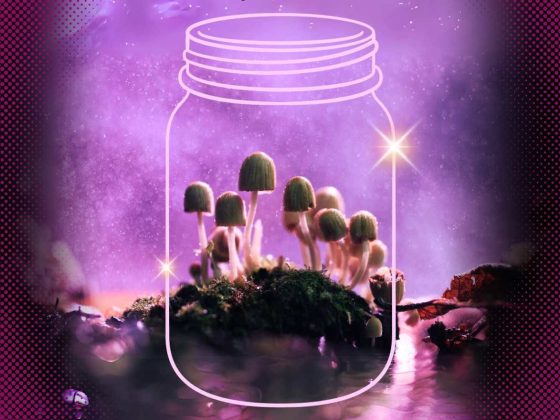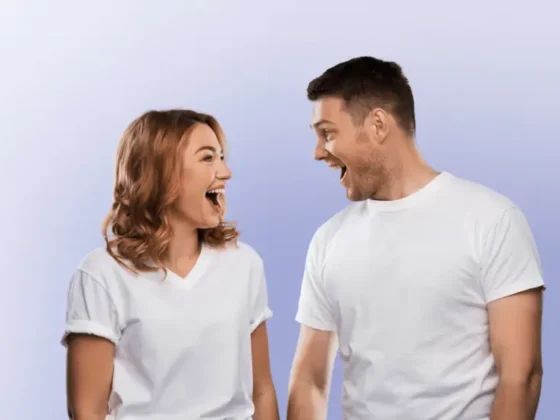About 3.2 million Americans have tried psychedelic drugs like psilocybin, found in magic mushrooms1. These drugs are known for their intense effects. But, some people are now looking into microdosing. This means taking tiny amounts to improve focus, creativity, and mood without the strong effects.
But is microdosing safe? We’ve looked into the science and risks. Our investigation aims to uncover the truth about microdosing magic mushrooms.
Key Takeaways
- Microdosing involves consuming very small, sub-perceptual doses of psilocybin-containing mushrooms, typically 10-20 micrograms every 3-4 days.
- Anecdotal reports suggest microdoses can boost creativity, energy, focus, and mood, but the benefits are largely unproven.
- Psilocybin has shown potential in treating depression, anxiety, and addiction in clinical trials, but microdosing remains an emerging and largely unregulated practice.
- Potential risks include nausea, panic, psychosis, and lasting perceptual changes, especially for those with pre-existing mental health conditions.
- Precise dosing is challenging, and the legality of psilocybin varies widely across the U.S.
Understanding Magic Mushrooms and Their History
Magic mushrooms, also known as psilocybin mushrooms, are wild fungi with a psychoactive compound called psilocybin. There are over 180 species of these mushrooms, with the Psilocybe genus being the most common for microdosing2.
Ancient Uses and Cultural Significance
The history of psilocybin mushrooms goes back to the Aztecs in ancient Mexico. They were called “sacred mushrooms” and used in rituals for spiritual experiences and visions2. In Hindu and Eastern traditions, these mushrooms have been used for centuries in religious practices.
Traditional vs. Modern Applications
Psilocybin mushrooms have been used for centuries, but their modern uses have changed. Today, research is exploring their benefits for treating depression, anxiety, eating disorders, and addiction2.
Legal Status and Classification
In the United States, psilocybin is a Schedule I drug, meaning it has no accepted medical use and is considered highly addictive2. This limits research and use to recreational purposes, which are illegal in most countries.
Recent research has looked into the history and diversity of Psilocybe mushrooms. A study by the University of Utah and the Natural History Museum of Utah found that psilocybin was first synthesized in these mushrooms about 65 million years ago3. The study also found two distinct gene orders in the psilocybin-producing gene cluster, showing an ancient split in the genus Psilocybe3.
“The molecular structure of psilocybin, found in Psilocybe mushrooms, mimics serotonin and binds tightly to serotonin receptors, potentially causing altered behaviors and serving as a deterrent to predation or insect defense mechanisms, although empirical studies are lacking in this regard.”
As research on magic mushrooms and psilocybin continues, their potential for therapy and cultural use is still being debated23.
What is Microdosing Mushrooms
Microdosing is taking small amounts of psilocybin, the active part of magic mushrooms4. It aims to get benefits without the strong effects of big doses4. People think it can help with mental health and well-being, making it popular4.
But, scientists are still studying if it really works4. Most studies rely on what people say, which can be hard to trust4. A 2024 review found some good effects on mood and sleep, but not much for creativity4.
Even though it’s mostly safe, knowing what you’re taking is hard because many psychedelics are illegal4. The FDA has warned about dangers of untested products, with 12 people getting very sick4. Psychedelics can affect people differently, leading to feelings like anxiety and paranoia4.
On the other hand, using psychedelics with a doctor’s help has shown promise for mental health issues4. This method is safer and more controlled, offering a better way to use these substances4.
Microdosing mushrooms might have benefits, but the science is still out, and there are risks45. If you’re interested in using psychedelics for health, talk to a doctor about safer options like therapy45.
| Characteristic | Microdosing Mushrooms | Psychedelic-Assisted Therapy |
|---|---|---|
| Dosage | Roughly 10% of a therapeutic or full dose | Therapeutic or full dose under professional supervision |
| Legal Status | Illegal or controlled substance in most areas | Legal and regulated in certain medical contexts |
| Research Evidence | Limited and largely anecdotal | Promising results in clinical trials |
| Potential Benefits | Subtle improvements in well-being and mental health | Significant improvements in mental health conditions |
| Risks and Side Effects | Headaches, anxiety, worsening mood, potential for serious harm | Managed and minimized under professional supervision |
The table shows the main differences between microdosing and therapy with psychedelics45. It highlights the risks and limits of microdosing compared to the safer, more proven therapy option45.
The Science Behind Psilocybin
Psilocybin, found in magic mushrooms, is getting more attention for its health benefits. It works by affecting serotonin receptors in the brain.
How Psilocybin Affects the Brain
After eating psilocybin, it quickly turns into psilocin. This molecule is like serotonin, a brain chemical. Psilocin then connects with serotonin 2A receptors, causing big changes in the brain6.
These changes happen fast, in just 30 minutes6. They affect how the brain connects and how we feel.
Serotonin Receptors and Mood Regulation
Serotonin helps control our mood. Low levels can lead to depression6. Psilocybin can quickly change brain connections and improve mood6.
Microdosing, or taking small amounts of psilocybin, might keep the brain healthy and boost creativity6. It could help break bad thought patterns and make the brain more flexible6.
“Psilocybin, a psychoactive chemical derived from mushrooms, has shown significant therapeutic effects in combating treatment-resistant major depressive disorder, PTSD, cluster headaches, anxiety, anorexia, OCD, and substance abuse.”6
The science on psilocybin is still growing. But, its potential for helping mental health is exciting. As we learn more, we might find new ways to use it to improve our minds and lives.
Clinical Research and Current Studies

Psilocybin is getting more attention for its potential in treating mental health issues, like depression7. A 2023 study showed big drops in depression symptoms after just 43 days of use7. Also, a 2022 trial found that people felt better even a year later7.
But, we need more research to know how safe and effective psilocybin is7. The FDA is watching these studies closely. They make sure everything is done safely and right7.
| Key Insights from Psychedelic Research |
|---|
| About 20 studies on microdosing have been published in the last 10 years8. There have been attempts to check if findings can be repeated8. Only 2 authors shared data for reanalysis8 2 authors shared partial datasets8 2 authors didn’t respond to requests for data8 |
These numbers show where research on microdosing mushrooms stands today8. The field faces challenges like getting and sharing data8. As scientists keep studying psilocybin, we’ll learn more about its benefits and risks7.
“The research on psilocybin for depression is incredibly promising, but we still have a long way to go to fully understand its potential and risks.”
– Dr. Emily Lindner, Clinical Psychologist
Potential Benefits of Mushroom Microdosing
Research is showing that microdosing psilocybin might help with mental health and brain function9. Small studies suggest it can boost brain power and ease depression and anxiety9. A big study found that those who microdose psilocybin feel better and worry less over time9.
Depression and Anxiety Treatment
A study with 953 microdosers and 180 non-microdosers showed big mood boosts and symptom drops in microdosers9. Women who microdose psilocybin saw bigger drops in depression than men9.
Cognitive Enhancement
Older people who microdose psilocybin, especially those over 55, saw big gains in brain tests9. But, the study’s small groups mean more research is needed9.
Creativity and Focus Improvements
Another study found 26.6% of microdosers felt happier, and 14.8% focused better10. Those who only used psilocybin found bigger benefits than others10. Psychedelics like LSD and psilocybin might also help with different health issues10.
But, we need more research on microdosing9. Dr. Balázs Szigeti said the study’s design might not rule out placebo effects9. Dr. Szigeti also noted that only a few studies have looked into microdosing, leading to mixed opinions9.
The benefits of mushroom microdosing are interesting, but we need more research9. Always talk to a doctor before trying new treatments.
Proper Dosing Guidelines and Methods
Microdosing psilocybin means taking a small dose, about one-tenth to one-fifth of a normal dose11. These small amounts are taken on a set schedule, like the Stamets Protocol or the Fadiman Protocol11. This helps avoid strong psychedelic effects while still getting benefits11.
Dosing needs to be precise. Microdosing usually involves 100 mg to 250 mg of dried mushrooms11. This is much less than a standard dose. On the other hand, 2.5 grams to 5 grams can cause intense psychedelic experiences11.
A ‘heroic dose’ is over 5 grams of dried mushrooms. It leads to a complete loss of self-awareness and cognitive impairment11.
For research, psilocybin is given in milligrams. A low dose is 10 mg, a standard dose is 20-30 mg, and a high dose is 30-40 mg11. Dried Psilocybe cubensis mushrooms have about 1% psilocybin per gram11.
Always dose psilocybin in a controlled setting with licensed professionals11. It’s important to know the potency and how it’s absorbed by the body. Everyone’s body reacts differently12.
| Microdose | Standard Dose | High Dose | Heroic Dose |
|---|---|---|---|
| 100-250 mg dried mushrooms | 2.5-5 grams dried mushrooms | Over 5 grams dried mushrooms | Over 5 grams dried mushrooms (or 50 mg psilocybin) |
| 10 mg extracted psilocybin | 20-30 mg extracted psilocybin | 30-40 mg extracted psilocybin | Over 40 mg extracted psilocybin |
Psilocybin has been recognized by the FDA for treating depression12. But, it’s illegal in most places, except for research or special programs12.
“Proper dosing should be done in a controlled environment with licensed professionals to ensure safety and accuracy.”
Safety Concerns and Risk Factors
Exploring the benefits of mushroom microdosing is important, but we must also look at the risks13. Short-term side effects can include hallucinations and impaired thinking, especially if not done safely13. There’s also concern about the long-term effects on mental health, as research is still limited13.
Another worry is the risk of developing tolerance to psilocybin, the active compound in magic mushrooms13. This could mean needing more of the substance, which might lead to worse effects13. While some say it helps with quitting bad habits, there’s no solid proof it’s safe or works13.
Short-term Side Effects
- Hallucinations
- Impaired thinking
- Fear and agitation
- Confusion
Long-term Health Implications
The long-term effects of regular mushroom microdosing are not well understood13. Some people report feeling more energetic and creative, but the science is still out13. It’s key to know the risks and talk to a doctor before trying it.
| Potential Risks of Mushroom Microdosing | Potential Benefits of Mushroom Microdosing |
|---|---|
| Hallucinations Impaired thinking Tolerance development Unknown long-term mental health impacts | Enhanced energy and creativity Decreased anxiety and depression symptoms Improved cognitive function Potential for quitting bad habits |
While mushroom microdosing might have benefits, we must weigh the risks carefully13. It’s vital to talk to a doctor and stay updated on research13. As scientists learn more, understanding both the risks and benefits will help us make better choices.
Legal Considerations and Regulations

Microdosing psilocybin mushrooms has become more popular. But, it’s important to know the legal rules around it. Psilocybin, found in magic mushrooms, is a Schedule I controlled substance in the U.S14.. This makes it illegal to have, use, or share psilocybin at the federal level. Breaking these laws can lead to serious consequences.
But, the laws on psilocybin are changing. Places like Colorado and Oregon now allow its use for medical or fun reasons. Some cities in California, Colorado, Washington, Maine, Massachusetts, Michigan, Minnesota, and Washington have made it okay to have it without fear of arrest14. Other states like California, Connecticut, Hawaii, Maryland, Minnesota, Missouri, New Jersey, New York, Rhode Island, and Vermont are working on laws to make it legal14.
Even where psilocybin is legal or decriminalized, there might be rules to follow. Your job might also have rules against using controlled substances, even in places where it’s legal1516. So, it’s key to talk to trusted doctors and experts to understand the laws in your area.
As laws change, it’s vital to stay informed and careful if you’re interested in microdosing psilocybin. Getting advice from experts and keeping up with new laws can help you use it safely and legally.
Expert Opinions on Microdosing Safety
The scientific world is split on microdosing mushrooms’ safety and effectiveness. Some experts are cautiously hopeful, while others call for more17 research to understand the benefits and risks18.
Medical Professional Perspectives
Healthcare experts say microdosing with psilocybin should only happen with a doctor’s watchful eye in a safe place17. They stress the need for accurate dosing and constant monitoring to avoid18 short-term and long-term side effects.
Research Community Insights
Researchers agree that more studies are needed to confirm microdosing’s safety and benefits17. Some studies hint at mood, cognitive, and creativity boosts18. Yet, experts warn that the current evidence is not strong enough.
The legal status of psilocybin is a big worry, as it’s banned in many places17. Experts urge caution and advise talking to doctors before trying microdosing, due to the legal dangers.
As research on microdosing grows, both healthcare and research communities push for a careful, evidence-based approach1718. They aim to protect those interested in this practice.
Interactions with Other Medications
When you start microdosing mushrooms, knowing about drug interactions is key. Psilocybin, the main active compound in magic mushrooms, can mix with many medications and supplements. This can be risky if not managed right19.
Studies show that psilocybin can interact with many psychiatric drugs. This includes adrenergic agents, antipsychotics, and antidepressants. Always talk to a doctor before starting microdosing to avoid bad reactions19.
| Medication Class | Potential Interactions with Psilocybin |
|---|---|
| Antidepressants | People on antidepressants might not feel much from psilocybin. Mixing them can cause serotonin syndrome, which is very dangerous20. |
| Opioids | Psilocybin and opioids together can slow down your heart and breathing. This can even stop them20. |
| Benzodiazepines | Using benzodiazepines with psilocybin can lead to accidents. This is because both can make you feel very tired and see things differently20. |
Recreational ecstasy pills can have a lot of MDMA, sometimes too much. Mixing psilocybin with stimulants can cause high blood pressure and heart problems. It can even lead to seizures or heart attacks20.
Psilocybin and other hallucinogens together can be very dangerous. They can cause too much serotonin, leading to high blood pressure, fast heart rate, and even death20.
Even though psilocybin is generally safe, with only 0.2% needing emergency care, it’s still important to be careful. Always talk to a doctor before trying microdosing or any psychedelic activities.
Alternative Treatment Options
Microdosing mushrooms is seen as a new way to help with mental health. But, traditional treatments are still key to consider21. These include things like therapy, medicine, and making lifestyle changes21.
Psychotherapy, like cognitive-behavioral therapy (CBT), is a big part of mental health care21. It helps people learn how to deal with problems and feel better overall21.
Medicines like antidepressants and anti-anxiety drugs are also used a lot21. They have been tested a lot and can help many people. But, they can also have side effects22.
Changing your lifestyle, like exercising and getting better sleep, is also important for mental health21. These changes can help a lot and work well with other treatments21.
| Alternative Treatment Approach | Potential Benefits | Considerations |
|---|---|---|
| Psychotherapy | Develop coping strategies Address underlying issues Improve overall well-being | Requires regular sessions Effectiveness varies for individuals |
| Medication | Manage mental health conditions Provide symptomatic relief | Potential side effects Requires medical supervision |
| Lifestyle Modifications | Holistic approach to well-being Complement other treatments | Requires consistent effort Individual response may vary |
Choosing the right treatment is a big decision. It should be made with the help of a healthcare provider22. They will consider what’s best for you, based on your needs and what might happen with each option22. Mixing traditional treatments with new ones, like microdosing, might be the best way to help your mental health23.
When to Consult Healthcare Providers
Before trying microdosing mushrooms, it’s key to talk to healthcare providers. They can give you medical advice and professional guidance to keep you safe and healthy24. In 2015, 48% of U.S. doctors got money from companies making medicines, showing why getting unbiased advice is important24.
Doctors can check your health, medicines, and treatment decisions to see if microdosing is right for you25. They also know about the legal issues with psilocybin, since it’s a Schedule I drug25.
They can also tell you about other treatments, like FDA-approved medicines, that might be better for you25. With their help, you can decide if microdosing is the best choice for you.
“Consulting healthcare providers is essential before considering microdosing. They can provide the necessary guidance to ensure your safety and well-being.”
Getting advice from your doctor is crucial when dealing with psilocybin and microdosing24. Companies spend about $20 billion yearly to influence doctors, making unbiased advice even more vital24.
As research on psilocybin grows, with places like Oregon legalizing its use24, working with your doctor is more important than ever. They can help you understand the treatment decisions and risks or benefits of microdosing25.
Conclusion
Mushroom microdosing might help with mental health and brain function. But, we need more studies on its safety and long-term effects26. Some people, especially older adults, have seen better mood and brain function. Yet, adding lion’s mane mushrooms and niacin didn’t make a big difference26.
Microdosing is illegal in most places. It should only be done in a doctor’s office27. Even small doses of magic mushrooms can be risky. Some studies found that people felt anxious28. It’s key to be careful and get advice before trying it.
Research on microdosing safety and its future is ongoing26. It’s important to make smart choices about our health27. While some people say microdosing helps, talking to a doctor is always best. This way, we can explore new treatments safely and wisely.
FAQ
What are magic mushrooms and how do they work?
Magic mushrooms, or “shrooms,” are fungi that make you see and feel things differently. They have a compound called psilocybin. This compound changes how your brain works, affecting your mood and thoughts.
What is microdosing mushrooms?
Microdosing is taking a tiny amount of psilocybin mushrooms. It’s just a small fraction of what you’d take to get high. People do it to feel better without the strong effects.
What are the potential benefits of microdosing mushrooms?
Studies show microdosing might help with depression and anxiety. It could also boost creativity and focus. But, we need more research to know for sure.
How does psilocybin affect the brain and mood?
Psilocybin works with serotonin in the brain. Serotonin helps control mood. So, it might make you feel happier and more emotionally balanced.
What are the safety concerns with microdosing mushrooms?
Microdosing can cause hallucinations and affect your thinking. It might also make you feel scared or confused. We don’t know all the long-term effects yet. Always use it carefully and with a doctor’s help.
What is the legal status of microdosing mushrooms?
In the U.S., magic mushrooms are illegal because they’re seen as having no medical use. Only a few places allow microdosing. But, it’s still illegal in most places, and you could face legal trouble.
When should I consult a healthcare provider about microdosing?
Always talk to a doctor before trying microdosing. They can tell you about risks, legal issues, and other treatments. They’ll also check if it’s safe for you, considering your health and any medicines you’re taking.
Source Links
- https://oxfordtreatment.com/substance-abuse/microdosing/
- https://www.vice.com/en/article/everything-to-know-about-magic-mushrooms-vice-guide/
- https://attheu.utah.edu/facultystaff/psychoactive-psilocybins-evolution-in-magic-mushrooms/
- https://www.healthline.com/health/beginners-guide-to-microdosing
- https://www.bannerhealth.com/healthcareblog/teach-me/can-microdosing-psychedelics-boost-your-mental-health
- https://www.cnn.com/2022/06/11/health/psilocybin-brain-changes-life-itself-wellness-scn/index.html
- https://www.biopharmaservices.com/blog/psychedelics-high-and-microdosing-psychedelics-in-clinical-research-trials/
- https://pmc.ncbi.nlm.nih.gov/articles/PMC10875010/
- https://www.medicalnewstoday.com/articles/microdoses-of-psychedelic-mushrooms-may-improve-mood-and-mental-health
- https://harmreductionjournal.biomedcentral.com/articles/10.1186/s12954-019-0308-4
- https://psychedelic.support/resources/magic-mushroom-dosing-how-to/
- https://pmc.ncbi.nlm.nih.gov/articles/PMC9751063/
- https://healthyliferecovery.com/microdosing-psilocybin-the-pros-cons-and-unknowns/
- https://www.forbes.com/sites/alonzomartinez/2023/10/27/the-impacts-of-magic-mushrooms-on-the-workplace-legal-considerations-testing-options-and-employer-policies/
- https://advertisinglaw.fkks.com/post/102if2y/legal-considerations-when-advertising-psychedelic-products-and-related-therapeuti
- https://blog.petrieflom.law.harvard.edu/2022/04/08/microdosing-at-work-business-and-legal-implications/
- https://www.eatingwell.com/microdosing-mushrooms-8639338
- https://pmc.ncbi.nlm.nih.gov/articles/PMC10012542/
- https://pmc.ncbi.nlm.nih.gov/articles/PMC9177763/
- https://recovered.org/hallucinogens/psilocybin/psilocybin-and-other-drugs
- https://www.medicalnewstoday.com/articles/can-microdosing-psilocybin-the-compound-in-magic-mushrooms-aid-mental-health
- https://news.uga.edu/magic-mushrooms-can-treat-medication-resistant-depression-are-they-safe/
- https://www.ptsd.va.gov/professional/treat/txessentials/psychedelics_assisted_therapy.asp
- https://www.psychedelicpassage.com/how-to-discuss-psychedelics-with-your-healthcare-provider/
- https://www.linkedin.com/pulse/psychedelics-fda-approval-case-psilocybin-microdosing-eric-alspaugh-9n6ic
- https://www.nature.com/articles/s41598-022-14512-3
- https://daytryp.com/psilocybin/psilocybin-microdosing-a-comprehensive-2023-guide/
- https://www.everydayhealth.com/integrative-health/potential-health-benefits-of-microdosing-psychedelics/












